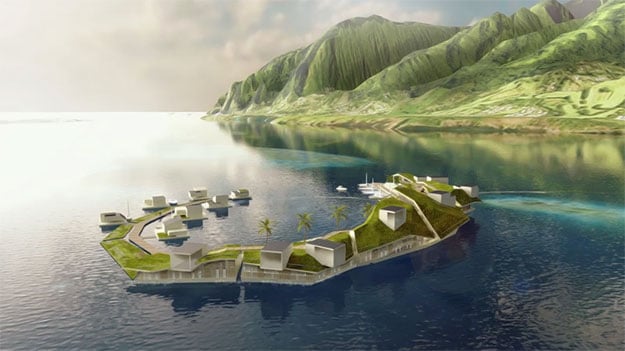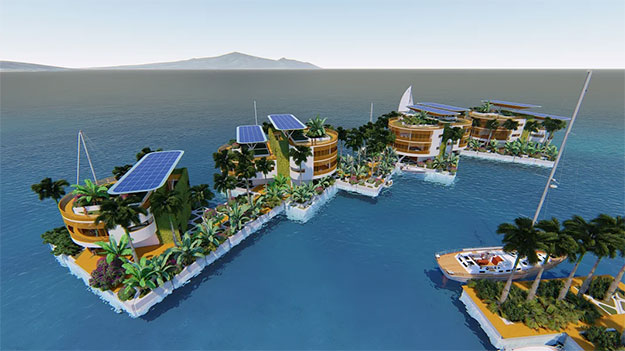A Futuristic Pacific Island Is In Development With Its Own Government Running On Cryptocurrency

If the current political climate has you wanting to pack your bags and get off the grid, you might be interested in what is to become the world's first independent floating nation. Called the Floating Island Project, this independent nation will consist of around 300 homes built on the island, along with a spattering of hotels, restaurants, an airport, and more, and will run under its own government using a cryptocurrency called Varyon.
The concept has drawn the attention of philanthropists, academics, and various investors. It will cost up to $50 million and is being funded in large part by PayPal founder Peter Thiel, along with philanthropic donations through the Seasteading Institute and Blue Frontiers, which sells Varyon tokens. The project is a pilot program in partnership with the government of French Polynesia, and could eventually see more islands like it pop up.
"Once we see how this first island works, we will have a proof of concept for islands to house climate refugees," Nathalie Mezza-Garcia, a political scientist who is now a 'seavangelesse', or an evangelist who supports living off the grid and on the ocean, told CNBC.

"The initial plan and the long-term vision is to have autonomous micro-nations, and the reason for why that is important is because governments on land don't really have an incentive of doing their job at their best," Mezza-Garcia added.
Essentially the island (and others like it) would create a new society supported by its own economy. Governments under the Floating Island Project would only exist as service providers, allowing the so-called floating communities to self-govern with their own set of rules and ideals. Businesses on the island would operate outside of government regulations as well.
Whether it all works as intended remains to be seen. Barring any snags, the project is expected to finished by 2022.
Image Sources: Blue Frontier


